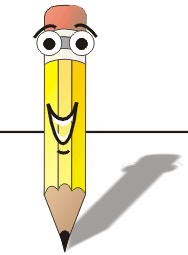|
HOW
TO HANDLE GENEALOGY UNPLEASANTRIES
Unpleasant, even
devastating events will turn up in nearly every family.
Do you have any examples from your own life where facing
the truth has helped someone heal? If so, how might this
apply to an experience you might find in your genealogy
research?
The Smith's were proud of their family tradition.
Their ancestors had come to America on the Mayflower.
Their line had included Senators, Pastors, and Wall
Street wizards.
Now they decided to compile a family history, a legacy
for the children. They hired a fine author. Only one
problem arose: how to handle that great-uncle who was
executed in the electric chair. But the author said not
to worry, he could handle that section of history
tactfully.
When the book appeared, the family turned to the section on Uncle
George. There, they read, "George Smith occupied a chair of
applied electronics at an important government institution, was
attached to his position by the strongest of ties. His death came
as a real shock."
Based on information in the syllabus, what is the value of belonging
to your own particular family unit, even if they are not the most
noteworthy, well-known, or written about? Is there any value
in being honest, hardworking, and giving?
How can you bring this information
out in your family history? Do you have an interest in locating
information of this nature as well as birth, marriage, and death
dates and places?
Are you interested in joining others
who are researching similar ethnic groups, life-event groups (such
as Daughters of the American Revolution, the Order of the Cincinnati,
Children of the Confederation, etc.)?
There are several ways
of showing appreciation for those who give freely of
their materials for both current and future
genealogists. This includes:
- Using pencils in
archives to prevent ink from marring books.
- Not photocopying
those volumes deemed too old or frail.
- Sending thank you
notes to those who have particularly aided you.
- Sharing copies of
your own compiled information with others.
- Treating carefully
the information shared with you by others.
|

|
Can you think of other
ways you might be able to show appreciation for the
collections put together and preserved by others?
|